diarrhea support
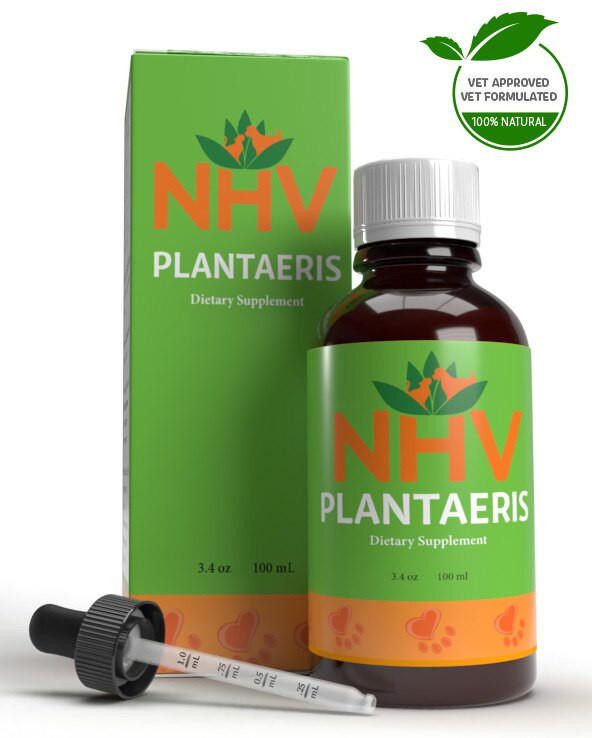
free shipping over $100 (USA & Canada)
1-877-937-4372 the pet expert hotline
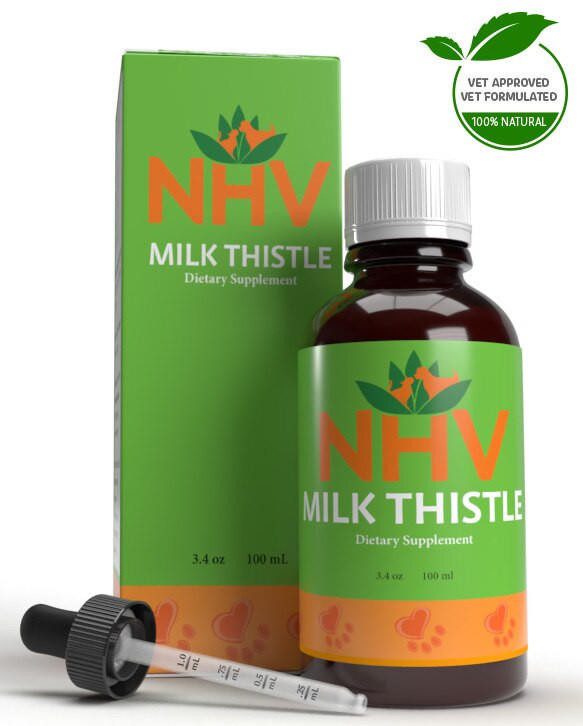
100% Natural Liver and Kidney Detox and Cancer Support in Cats

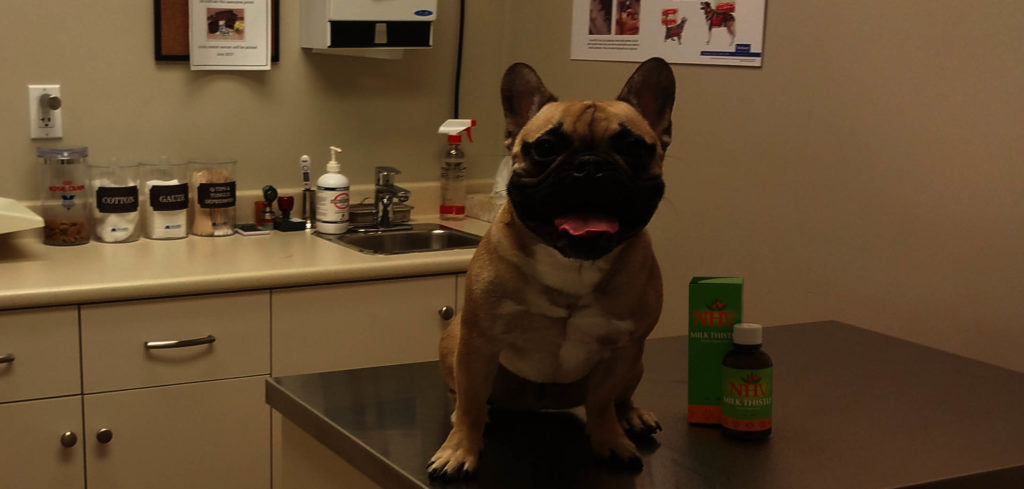
When your pet is diagnosed with a condition, it can be quite overwhelming. Your veterinarian will try to explain everything to you, but it is a lot of information to take in at once. They will often prescribe some medications to help keep your pet comfortable or remedy the condition which your pet may have. There are many different types and classes of pharmaceutical medications and they all have their benefits and risks. Your veterinarian will weigh the benefits of your pet’s medication against the risks.
If you have any questions or concerns at all about the medication your veterinarian has prescribed for your pet, don’t be afraid to ask! Sometimes veterinary staff can take their knowledge of veterinary medicine for granted. I know that, as a vet tech, I am also guilty of this sometimes. It’s easy to forget that not everyone is familiar with some of these commonly used medications. Your vet or vet tech will be more than happy to provide you with any information you would like, all you have to do is ask!
Here are some common medication classes used in veterinary medicine and some things you may want to speak with your veterinarian about in more detail.
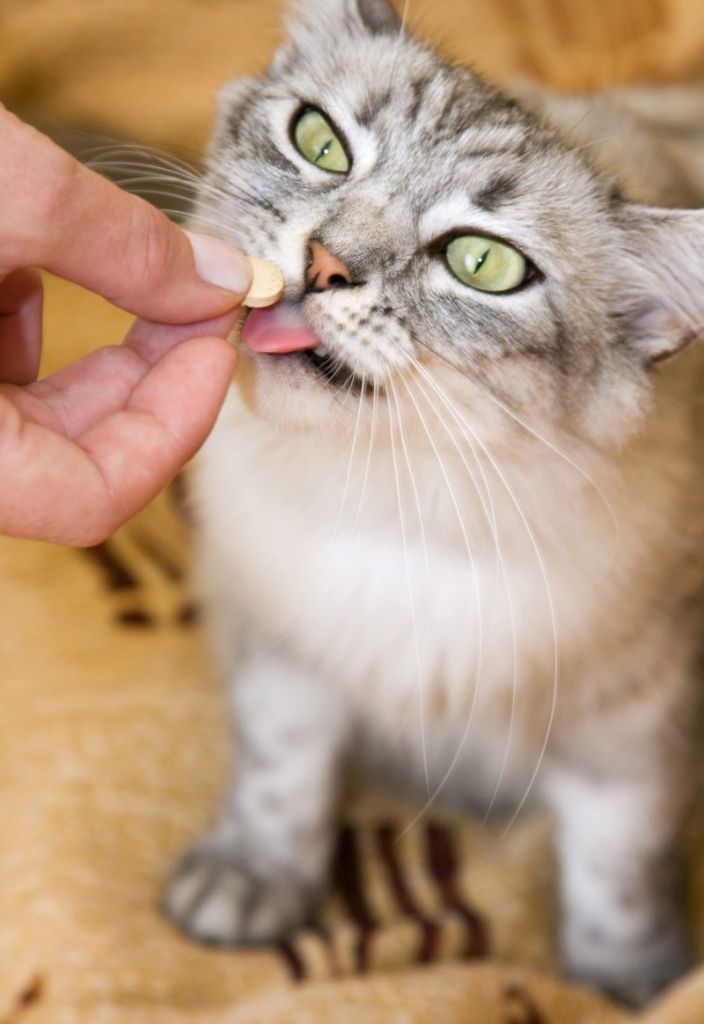
NSAIDs are used to control inflammation and dscomfort. These are some of the most commonly used drugs in veterinary discomfort management. These medications are generally safe to use short term in healthy animals, whether after a surgery or injury. If your pet requires a longer course or ongoing treatment with this medication, your vet may recommend bloodwork be done prior in order to check your pet’s kidney and liver function. This is because NSAIDs are biotransformed in the liver and excreted by the kidneys.
NSAID use can cause mild changes in liver function, which may not be concerning in an otherwise healthy animal. However, if there is underlying liver or kidney disease, the use of NSAID medications should be limited or even avoided. If your pet is on long term NSAID medication, bloodwork should be monitored regularly to check liver and kidney function. NSAIDs should always be given with food, as they have a small possibility of causing gastric ulcers. Giving NSAIDs along with food greatly reduces this risk. NSAIDs should not be taken at the same time as corticosteroids, as this increases the chances of causing gastric ulcers.

Corticosteroids can cause side effects such as appetite increase and weight gain, increased drinking and urination.
There are many different types of steroids. In veterinary medicine ‘steroid’ usually refers to corticosteroids. Corticosteroids reduce inflammation in the body. Inflammation can be caused by many things, such as trauma, allergic reactions, cancer, and other pathologies. Corticosteroids can work quite well to reduce inflammation; however, their long-term use should be avoided unless all other options are exhausted.
Corticosteroids can cause side effects such as appetite increase and weight gain, increased drinking and increased urination. Over use of corticosteroids in dogs can lead to iatrogenic Cushing’s disease (Cushing’s disease caused by medication) In cats corticosteroid use can induce diabetes mellitus.
Your veterinarian should weigh the risks versus the benefits of using corticosteroids for your pet. If your pet is suffering from a condition with a poor prognosis, such as cancer, often the benefits of keeping your pet feeling well outweigh the possible side effects caused by the drug. If your pet is on corticosteroids longer than one week, the dose will need to be slowly weaned down, it should not be stopped abruptly. In such situations, natural supplements and remedies like ours can prove extremely beneficial.

There are, of course, many other classes of medications. Researching medications online can be beneficial, but it can sometimes also cause unnecessary worry. When researching your pet’s medication, always keep in mind that the drug company is required to list every possible side effect. These side effects are those that were reported during the clinical trial of the medication, and even if only a very small fraction of patients reported these effects they must be listed.
For example, you may read that your pet’s medication can cause nausea, vomiting, weakness, lethargy, and neurological symptoms. This could mean that only 0.1% of cases ever see a single one of these symptoms. It does not necessarily mean that your pet has a high chance to develop every one of these side effects. Again, your vet has weighed the benefits against the risks of these medications and decided that the medications are in the best interest of your pet.
There are many, many types of antibiotics. Which antibiotic your veterinarian chooses for your pet depends on the bacteria which is being treated. There are antibiotics which target aerobic bacteria (bacteria which grows best in the presence of oxygen) and anaerobic bacteria (grows best without oxygen) There are also a few different forms, or shapes, that bacteria take. They can be either cocci (round), bacilli (rods) or spirochetes (spiral). Obviously with all of these different forms, choosing the appropriate antibiotic is extremely important. Often veterinarians will order a bacterial culture before choosing an antibiotic. This is to be sure that the correct medication is chosen.
Side effects of antibiotics are generally minor. They can cause mild gastric upset, which is usually remedied by giving the dose with food. They also are not able to distinguish beneficial bacteria from harmful bacteria, so they can cause a disruption in intestinal flora leading to diarrhea. This can be avoided by administering probiotics during treatment and for a few days after treatment. Or you can also consider getting NHV Plantaeris. It helps soothe the gut and helps relieve any digestive tract spasms.
One of the biggest concerns with antibiotics is antibiotic resistance. As with humans, it is extremely important that your pet finish the full course of any antibiotics prescribed (unless there are extreme adverse reactions, of course) Inappropriate use of antibiotics can lead to bacteria becoming resistant to certain antibiotics, leaving them unable to be treated. NHV stimmune works like a natural antibiotic that can be helpful in such a situation.
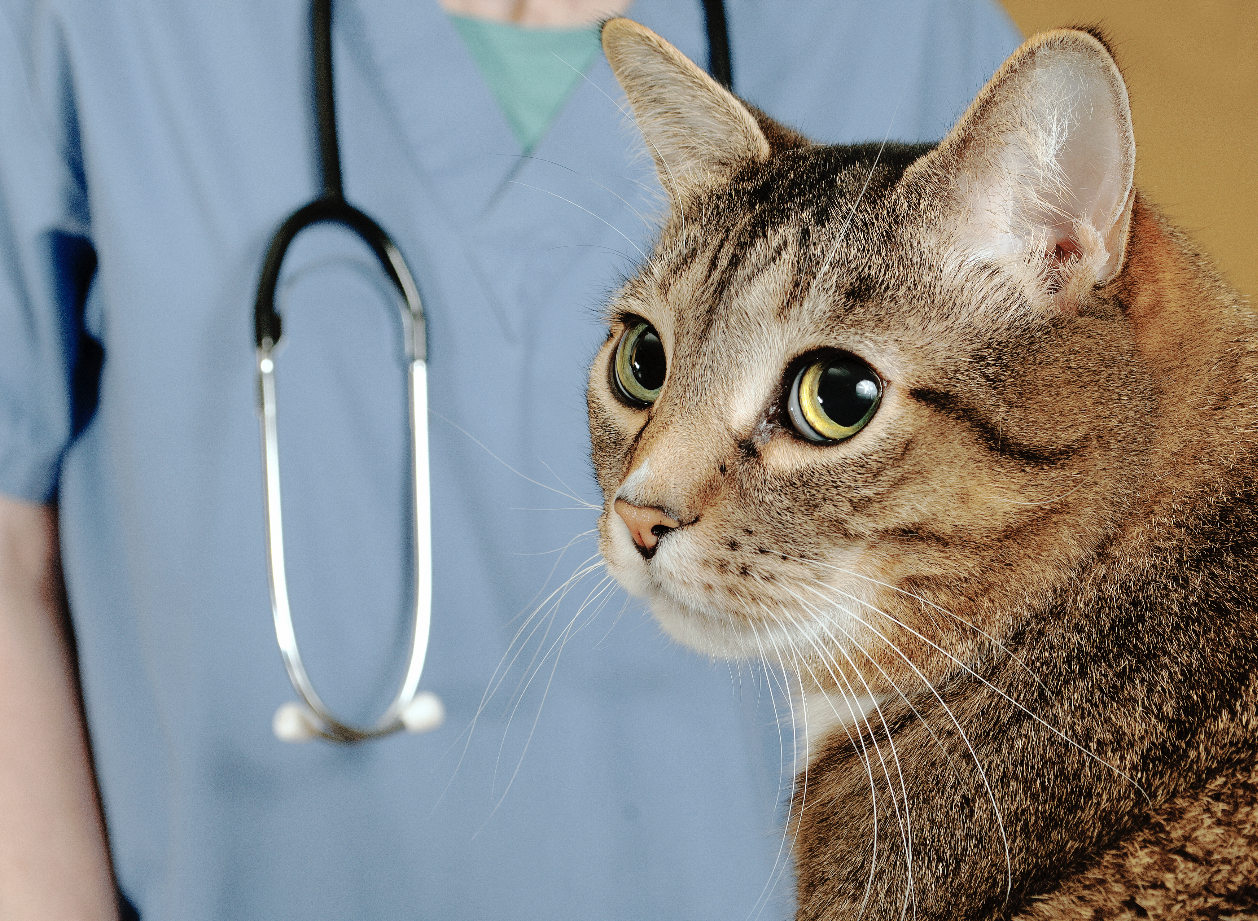
The processing of any medications in the body puts some stress on the liver. When your pet is on any medications, we recommend NHV Milk Thistle to help to protect the liver. NHV Milk Thistle also offers some kidney support. It is an excellent preventive herb that every pet can benefit from.
Just like humans, medications can sometimes cause pets to have changes in bowel movements, including diarrhea. This is especially true with antibiotics. If you notice any changes to your pet’s bowel movements while on medications, always tell your vet. To support your pet’s gut and help keep bowel movements healthy, you can use NHV Plantaeris. The blend has herbs that help reduce inflammation in the digestive tract and also help relieve digestive tract spasms.
NHV Yucca is a herbal extract that helps stimulate appetite and also works like a natural discomfort reliever. It can be used in conjunction with the medicines your vet prescribes and help keep your pet comfortable, in less discomfort and maintain a healthy appetite.
NHV Multi Essentials is a herbal multivitamin that helps provide extra energy and nutrition to pets. It is an excellent supplement to give to a pet who is on medications or is fighting an illness because it enhances the positives of the treatment you are offering to your pet. It compliments the medications with nutritive herbs.
NHV Pet Experts can help you find the supplements and remedies your pet needs that can fit right in your pet’s regimen. Many cancer fighting pets taking chemo and have found relief with our pet cancer supplements. While the medications treat a specific area, natural supplements help provide a holistic approach that supports the body’s vital organs and help maintain good quality of life. For instance, NHV Natures Immuno is a blend of medicinal mushrooms that helps revive the healthy cells that chemo may destroy. It helps support the positive effects of chemotherapy and holistically manage the negatives.
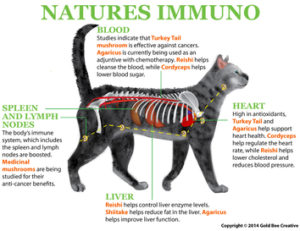
At NHV we believe in the power of integrative medicine. All of our supplements are safe to give along with veterinary medications and can complement your pet’s conventional regimen. If you would like help finding which supplements might be right for your pet, please don’t hesitate to contact our Pet Experts!
diarrhea support

Natural Relief for Diarrhea and Inflammatory Bowel Disease (IBD)
buy 2 and save $3
3 month supply for a small to medium size pet
What is it?
Plantaeris is a natural dog diarrhea remedy that works quickly and gently to support the relief of digestive disorders and the associated symptoms.
How does it work?
Why trust it?
NHV products are manufactured in an FDA and GMP-approved facility with care.

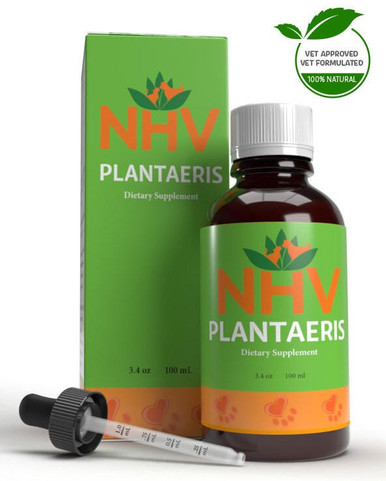
What is it?
Plantaeris is a natural dog diarrhea remedy that works quickly and gently to support the relief of digestive disorders and the associated symptoms.
How does it work?
Why trust it?
NHV products are manufactured in an FDA and GMP-approved facility with care.

Reduce intestinal upset and diarrhea with Plantaeris, a fast-acting, gentle, herbal, natural dog diarrhea remedy that will help your pet feel better in no time. Plantaeris is designed to help reduce symptoms of diarrhea.
Diarrhea is a symptom of digestive disorders. In dogs, it can be caused by inflammatory bowel disease, food allergies, or parasites such as giardia. Help your pet with Plantaeris dog diarrhea supplement and ensure they have plenty of fluids to prevent dehydration.
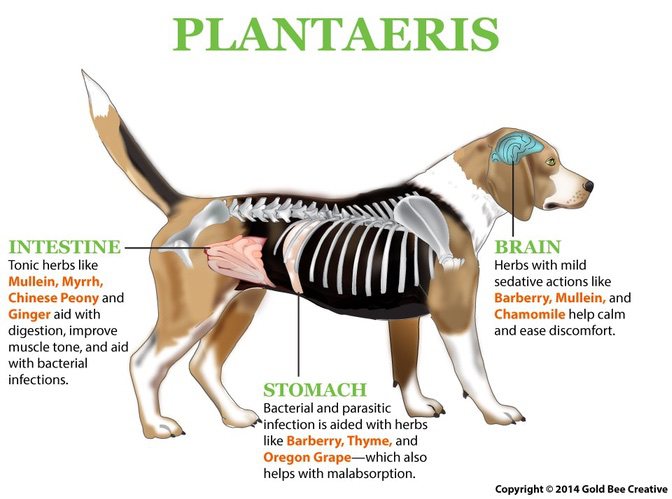
Barberry – Treats inflammation and infections.
Mullein – Soothes and lubricates the tissues of the GI tract.
Bayberry – Contains tannins, resins, and gums that control bacterial infection.
Myrrh – Relieves spasms, inflammation, and digestive discomfort.
Thyme – Improves digestion and relaxes GI spasms.
Chamomile – Relaxes the digestive system.
Chinese Peony – Reduces inflammation and relaxes spasms.
Ginger – Relieves discomfort and stimulates circulation.
Oregon Grape – Helps relieve indigestion and malabsorption.
Select your pet's weight to determine the correct dose.
To be taken twice daily. Determine your pet’s weight and then use the easy chart below to determine the correct dose. This is the minimum dosage.
Pet's Weight Dosage
0 - 15 lb = 0.5 ml
16 - 30 lb = 1.0 ml
31 - 45 lb = 1.5 ml
46 - 60 lb = 2.0 ml
61 - 75 lb = 2.5 ml
Over 75 lb = 3.0 ml
How to Administer
Shake well before use. The easiest method is to use the dropper provide and places the drops into your pet’s food or favorite treat. You can also use the dropper and squirt directly into the pet’s mouth.
Some pets can be finicky, if this occurs consider hiding the drops in foods most pet’s love such as fish, chicken or yogurt or a favorite treat. If your pet only eats dry food then soak a few kibbles at feeding time.
For Best Results
Herbal dietary supplements are beneficial to the health and wellbeing of your pet and are safe for long-term use. Every pet responds to natural herbal supplements differently, therefore it is important to be consistent and administer the product daily. Supplements generally take two to four weeks to take effect, however this will vary from one animal to the next.
Product Storage
All NHV Natural Pet Products are pure herbal extracts and contain no artificial additives, preservatives or coloring. Shelf life after opening is 6 months and must be refrigerated after opening.
Cautions and Contraindications
Do not use Plantaeris in pregnant or nursing animals. Speak to your vet before using our products. A second visit is recommended if your pet’s condition does not improve, or deteriorates after continued use of the supplements.
All information provided by NHV Natural Pet Products is for educational purposes only.
Reduce intestinal upset and diarrhea with Plantaeris, a fast-acting, gentle, herbal, natural dog diarrhea remedy that will help your pet feel better in no time. Plantaeris is designed to help reduce symptoms of diarrhea.
Diarrhea is a symptom of digestive disorders. In dogs, it can be caused by inflammatory bowel disease, food allergies, or parasites such as giardia. Help your pet with Plantaeris dog diarrhea supplement and ensure they have plenty of fluids to prevent dehydration.

Barberry – Treats inflammation and infections.
Mullein – Soothes and lubricates the tissues of the GI tract.
Bayberry – Contains tannins, resins, and gums that control bacterial infection.
Myrrh – Relieves spasms, inflammation, and digestive discomfort.
Thyme – Improves digestion and relaxes GI spasms.
Chamomile – Relaxes the digestive system.
Chinese Peony – Reduces inflammation and relaxes spasms.
Ginger – Relieves discomfort and stimulates circulation.
Oregon Grape – Helps relieve indigestion and malabsorption.
Select your pet's weight to determine the correct dose.
To be taken twice daily. Determine your pet’s weight and then use the easy chart below to determine the correct dose. This is the minimum dosage.
Pet's Weight Dosage
0 - 15 lb = 0.5 ml
16 - 30 lb = 1.0 ml
31 - 45 lb = 1.5 ml
46 - 60 lb = 2.0 ml
61 - 75 lb = 2.5 ml
Over 75 lb = 3.0 ml
How to Administer
Shake well before use. The easiest method is to use the dropper provide and places the drops into your pet’s food or favorite treat. You can also use the dropper and squirt directly into the pet’s mouth.
Some pets can be finicky, if this occurs consider hiding the drops in foods most pet’s love such as fish, chicken or yogurt or a favorite treat. If your pet only eats dry food then soak a few kibbles at feeding time.
For Best Results
Herbal dietary supplements are beneficial to the health and wellbeing of your pet and are safe for long-term use. Every pet responds to natural herbal supplements differently, therefore it is important to be consistent and administer the product daily. Supplements generally take two to four weeks to take effect, however this will vary from one animal to the next.
Product Storage
All NHV Natural Pet Products are pure herbal extracts and contain no artificial additives, preservatives or coloring. Shelf life after opening is 6 months and must be refrigerated after opening.
Cautions and Contraindications
Do not use Plantaeris in pregnant or nursing animals. Speak to your vet before using our products. A second visit is recommended if your pet’s condition does not improve, or deteriorates after continued use of the supplements.
All information provided by NHV Natural Pet Products is for educational purposes only.
discomfort support

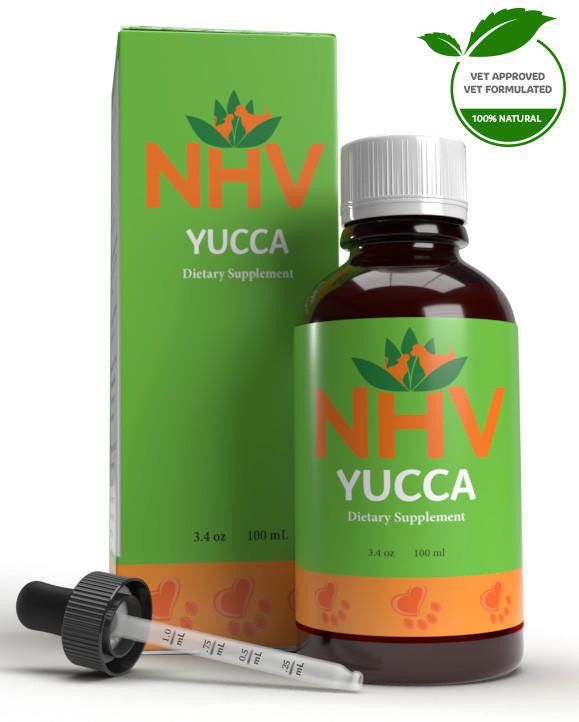
Support for Discomfort and Appetite Stimulant
buy 2 and save $3
3 month supply for a small to medium size
What is it?
NHV Yucca is used for cats as a supplement to provide nutrients, and may be helpful for discomfort, inflammation, and to increase or balance the appetite.
How does it work?
Why trust it?
NHV supplements are formulated by a veterinarian and master herbalist with a combined 50 years of experience.


What is it?
NHV Yucca is used for cats as a supplement to provide nutrients, and may be helpful for discomfort, inflammation, and to increase or balance the appetite.
How does it work?
Why trust it?
NHV supplements are formulated by a veterinarian and master herbalist with a combined 50 years of experience.

Yucca is used in cat food as well as food for other animals around the world. Its root is a highly nutritious herb that’s rich in vitamin C, beta-carotene, B vitamins, magnesium, iron, calcium, manganese, protein, niacin, and phosphorus.
Yucca contains two very beneficial compounds: sarsasapogenin and smilagenin. These two compounds work on the mucous membranes of the small intestine. These compounds help with the penetration and absorption of minerals and vitamins. Sarsasapogenin and smilagenin are known as steroidal saponins (phytosterols) which act as precursors to corticosteroids produced naturally by the body.
Steroidal saponins support the immune function of the body while stimulating and supporting the production of its own corticosteroids and corticosteroid–related hormones. Due to this action, studies conducted on Yucca have shown that it may be beneficial and effective for discomfort relief and inflammation in conditions such as arthritis. Yucca for cats may also be a natural appetite stimulant and may also help reduce the production of urease, which contributes to the unpleasant odors of urine and feces in some cats.
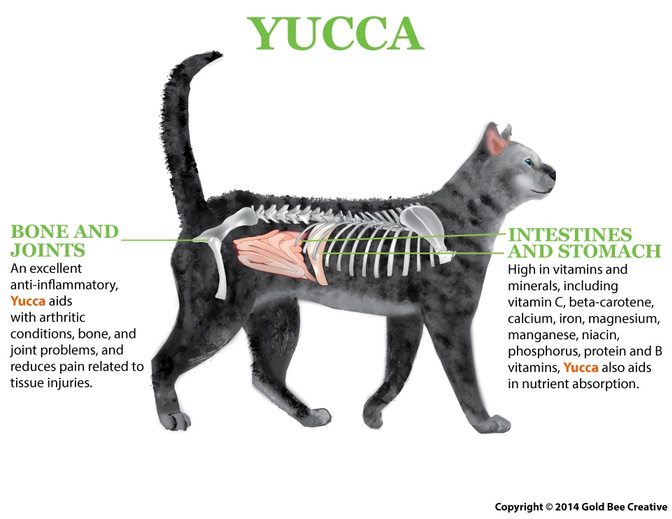
Yucca - Commonly used for supporting arthritis, as an anti-inflammatory, nutritive, antitumor, and digestive supplement.
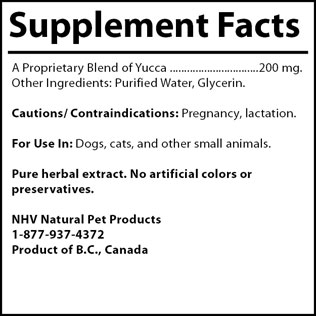
Select your pet's weight to determine the correct dose.
To be taken twice daily. Determine your pet’s weight and then use the easy chart below to determine the correct dose. This is the minimum dosage.
Pet's Weight Dosage
0 - 15 lb = 0.5 ml
16 - 30 lb = 1.0 ml
31 - 45 lb = 1.5 ml
46 - 60 lb = 2.0 ml
61 - 75 lb = 2.5 ml
Over 75 lb = 3.0 ml
How to Administer: Shake well before use. The easiest method is to use the dropper provided and place the drops into your pet’s food or favorite treat. You can also use the dropper and squirt directly into the pet’s mouth. Some pets can be finicky, if this occurs consider hiding the drops in foods most pet’s love such as fish, chicken, yogurt, or a favorite treat. If your pet only eats dry food then soak a few kibbles at feeding time.
For Best Results: Herbal dietary supplements are beneficial to the health and well-being of your pet and are safe for long-term use. Every pet responds to natural herbal supplements differently, therefore it is important to be consistent and administer the product daily. Supplements generally take two to four weeks to take effect, however this will vary from one animal to the next.
Product Storage:
All NHV Natural Pet Products are pure herbal extracts and contain no artificial additives, preservatives or coloring. Shelf life after opening is 6 months and must be refrigerated after opening.
Cautions and Contraindications
Do not use Yucca in pregnant or nursing animals.
Speak to your vet before using our products. A second visit is recommended if your pet’s condition does not improve, or deteriorates after continued use of the supplements. All information provided by NHV Natural Pet Products is for educational purposes only.
Yucca is used in cat food as well as food for other animals around the world. Its root is a highly nutritious herb that’s rich in vitamin C, beta-carotene, B vitamins, magnesium, iron, calcium, manganese, protein, niacin, and phosphorus.
Yucca contains two very beneficial compounds: sarsasapogenin and smilagenin. These two compounds work on the mucous membranes of the small intestine. These compounds help with the penetration and absorption of minerals and vitamins. Sarsasapogenin and smilagenin are known as steroidal saponins (phytosterols) which act as precursors to corticosteroids produced naturally by the body.
Steroidal saponins support the immune function of the body while stimulating and supporting the production of its own corticosteroids and corticosteroid–related hormones. Due to this action, studies conducted on Yucca have shown that it may be beneficial and effective for discomfort relief and inflammation in conditions such as arthritis. Yucca for cats may also be a natural appetite stimulant and may also help reduce the production of urease, which contributes to the unpleasant odors of urine and feces in some cats.

Yucca - Commonly used for supporting arthritis, as an anti-inflammatory, nutritive, antitumor, and digestive supplement.

Select your pet's weight to determine the correct dose.
To be taken twice daily. Determine your pet’s weight and then use the easy chart below to determine the correct dose. This is the minimum dosage.
Pet's Weight Dosage
0 - 15 lb = 0.5 ml
16 - 30 lb = 1.0 ml
31 - 45 lb = 1.5 ml
46 - 60 lb = 2.0 ml
61 - 75 lb = 2.5 ml
Over 75 lb = 3.0 ml
How to Administer: Shake well before use. The easiest method is to use the dropper provided and place the drops into your pet’s food or favorite treat. You can also use the dropper and squirt directly into the pet’s mouth. Some pets can be finicky, if this occurs consider hiding the drops in foods most pet’s love such as fish, chicken, yogurt, or a favorite treat. If your pet only eats dry food then soak a few kibbles at feeding time.
For Best Results: Herbal dietary supplements are beneficial to the health and well-being of your pet and are safe for long-term use. Every pet responds to natural herbal supplements differently, therefore it is important to be consistent and administer the product daily. Supplements generally take two to four weeks to take effect, however this will vary from one animal to the next.
Product Storage:
All NHV Natural Pet Products are pure herbal extracts and contain no artificial additives, preservatives or coloring. Shelf life after opening is 6 months and must be refrigerated after opening.
Cautions and Contraindications
Do not use Yucca in pregnant or nursing animals.
Speak to your vet before using our products. A second visit is recommended if your pet’s condition does not improve, or deteriorates after continued use of the supplements. All information provided by NHV Natural Pet Products is for educational purposes only.
multivitamin support
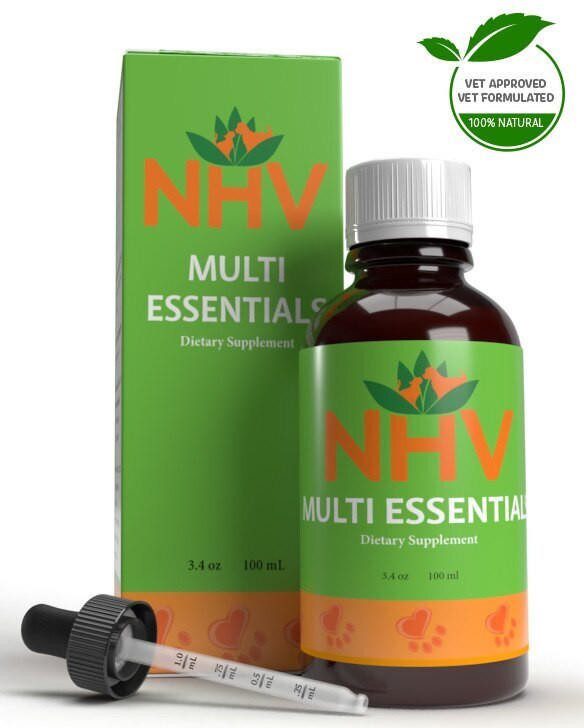
Herbal Digestive Aid, Energy Booster, and Multivitamin for Dogs
buy 2 and save $3
3 month supply for a small to medium size pet
What Is It?
NHV’s multivitamin for dogs targets the brain, stomach, major arteries, kidneys, and liver with a powerful blend of herbal support.
How Does it Work?
Why Should I Trust It?
100% natural plant-based liquid blend formulated by vets.

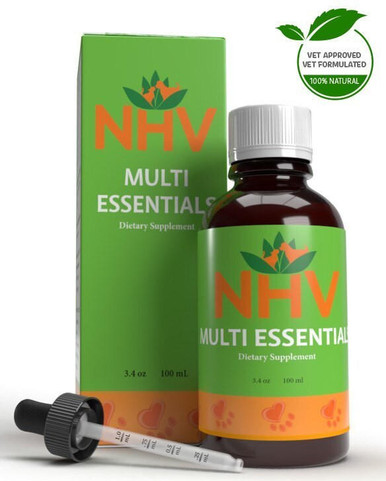
What Is It?
NHV’s multivitamin for dogs targets the brain, stomach, major arteries, kidneys, and liver with a powerful blend of herbal support.
How Does it Work?
Why Should I Trust It?
100% natural plant-based liquid blend formulated by vets.

Millions of people take multivitamins daily to support their health, and it only makes sense our canine companions can benefit just as much. This 100% natural plant-based liquid blend can help your dog with nutritional deficiencies.
Signs of Possible Vitamin Deficiency in Dogs
NHV’s Multi-Essentials are packed with herbs that are rich in vitamins and minerals. This vet-formulated blend is designed to benefit your dog’s health using all-natural organically grown herbs with no additives or preservatives.
Even if your pet is healthy, supplying a multivitamin is essential to maintain good health, and some pets need more vitamins and minerals than others. For more, read NHV’s blog, vet talk with Dr. Hillary Cook.
Benefits of NHV’s Multivitamins for Dogs
You can read NHV's blog about the importance of dog vitamin supplements. All pets can benefit from NHV’s Natural Pet Product, even small exotic pets.
If you have questions about plant-based supplements including our multivitamins for dogs, you can schedule a consultation with one of our highly trained holistic veterinarians, because, at NHV, total health and wellness for all pets is our top priority.
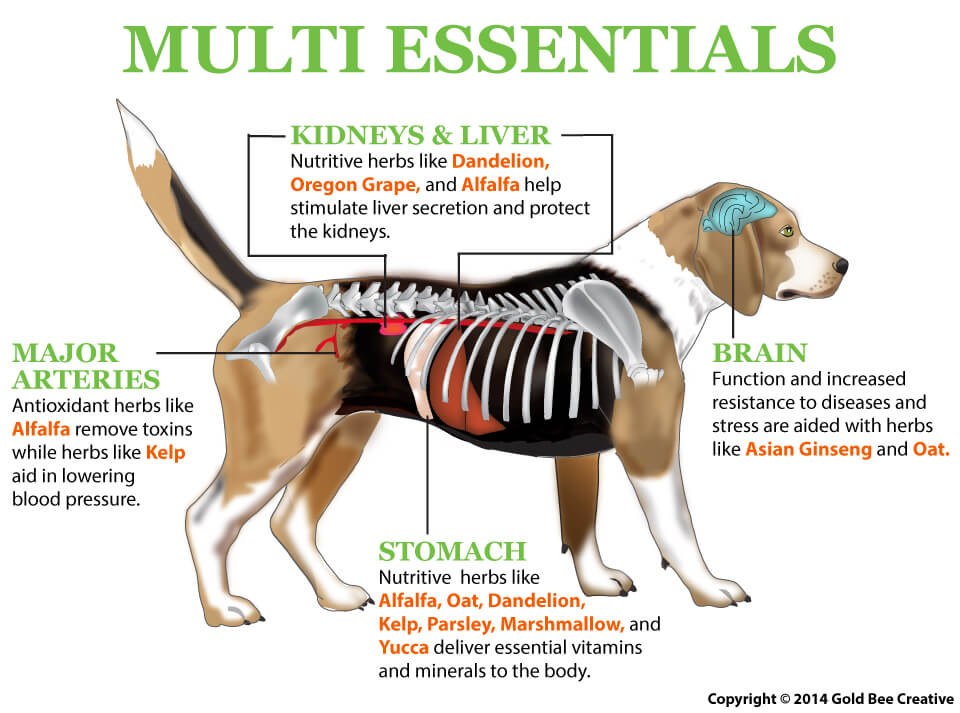
Select your pet's weight to determine the correct dose.
To be taken twice daily. Determine your pet’s weight and then use the easy chart below to determine the correct dose. This is the minimum dosage.
Pet's Weight Dosage
0 - 15 lb = 0.5 ml
16 - 30 lb = 1.0 ml
31 - 45 lb = 1.5 ml
46 - 60 lb = 2.0 ml
61 - 75 lb = 2.5 ml
Over 75 lb = 3.0 ml
How to Administer
Shake well before use. The easiest method is to use the dropper provide and places the drops into your pet’s food or favorite treat. You can also use the dropper and squirt directly into the pet’s mouth.
Some pets can be finicky, if this occurs consider hiding the drops in foods most pet’s love such as fish, chicken or yogurt or a favourite treat. If your pet only eats dry food then soak a few kibbles at feeding time.
For Best Results
Herbal dietary supplements are beneficial to the health and wellbeing of your pet and are safe for long-term use. Every pet responds to natural herbal supplements differently, therefore it is important to be consistent and administer the product daily. Supplements generally take two to four weeks to take effect, however this will vary from one animal to the next.
Product Storage
All NHV Natural Pet Products are pure herbal extracts and contain no artificial additives, preservatives or coloring. Shelf life after opening is 6 months and must be refrigerated after opening.
Cautions and Contraindications
Do not use Multi Essentials in pregnant or nursing animals. Speak to your vet before using our products. A second visit is recommended if your pet’s condition does not improve, or deteriorates after continued use of the supplements.
All information provided by NHV Natural Pet Products is for educational purposes only.
Millions of people take multivitamins daily to support their health, and it only makes sense our canine companions can benefit just as much. This 100% natural plant-based liquid blend can help your dog with nutritional deficiencies.
Signs of Possible Vitamin Deficiency in Dogs
NHV’s Multi-Essentials are packed with herbs that are rich in vitamins and minerals. This vet-formulated blend is designed to benefit your dog’s health using all-natural organically grown herbs with no additives or preservatives.
Even if your pet is healthy, supplying a multivitamin is essential to maintain good health, and some pets need more vitamins and minerals than others. For more, read NHV’s blog, vet talk with Dr. Hillary Cook.
Benefits of NHV’s Multivitamins for Dogs
You can read NHV's blog about the importance of dog vitamin supplements. All pets can benefit from NHV’s Natural Pet Product, even small exotic pets.
If you have questions about plant-based supplements including our multivitamins for dogs, you can schedule a consultation with one of our highly trained holistic veterinarians, because, at NHV, total health and wellness for all pets is our top priority.

Select your pet's weight to determine the correct dose.
To be taken twice daily. Determine your pet’s weight and then use the easy chart below to determine the correct dose. This is the minimum dosage.
Pet's Weight Dosage
0 - 15 lb = 0.5 ml
16 - 30 lb = 1.0 ml
31 - 45 lb = 1.5 ml
46 - 60 lb = 2.0 ml
61 - 75 lb = 2.5 ml
Over 75 lb = 3.0 ml
How to Administer
Shake well before use. The easiest method is to use the dropper provide and places the drops into your pet’s food or favorite treat. You can also use the dropper and squirt directly into the pet’s mouth.
Some pets can be finicky, if this occurs consider hiding the drops in foods most pet’s love such as fish, chicken or yogurt or a favourite treat. If your pet only eats dry food then soak a few kibbles at feeding time.
For Best Results
Herbal dietary supplements are beneficial to the health and wellbeing of your pet and are safe for long-term use. Every pet responds to natural herbal supplements differently, therefore it is important to be consistent and administer the product daily. Supplements generally take two to four weeks to take effect, however this will vary from one animal to the next.
Product Storage
All NHV Natural Pet Products are pure herbal extracts and contain no artificial additives, preservatives or coloring. Shelf life after opening is 6 months and must be refrigerated after opening.
Cautions and Contraindications
Do not use Multi Essentials in pregnant or nursing animals. Speak to your vet before using our products. A second visit is recommended if your pet’s condition does not improve, or deteriorates after continued use of the supplements.
All information provided by NHV Natural Pet Products is for educational purposes only.
Published: December 14, 2018